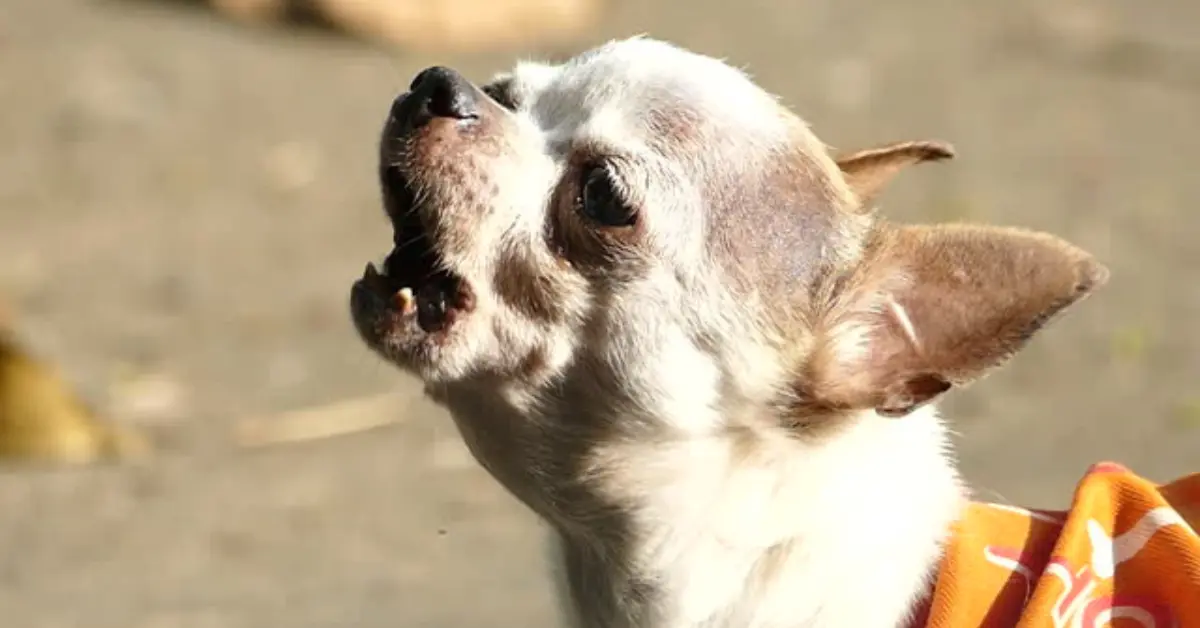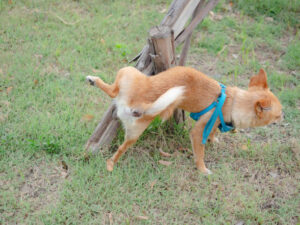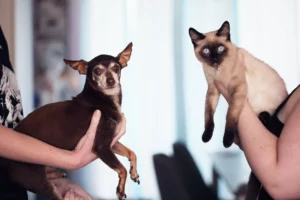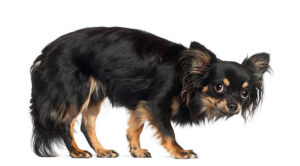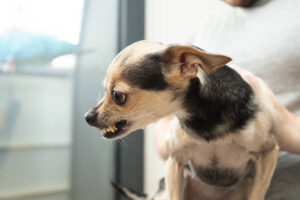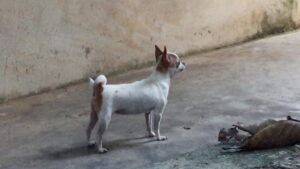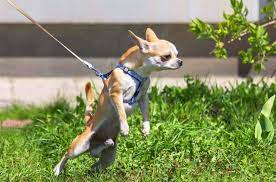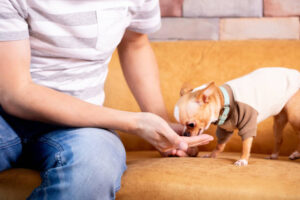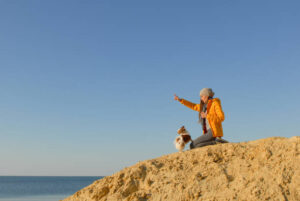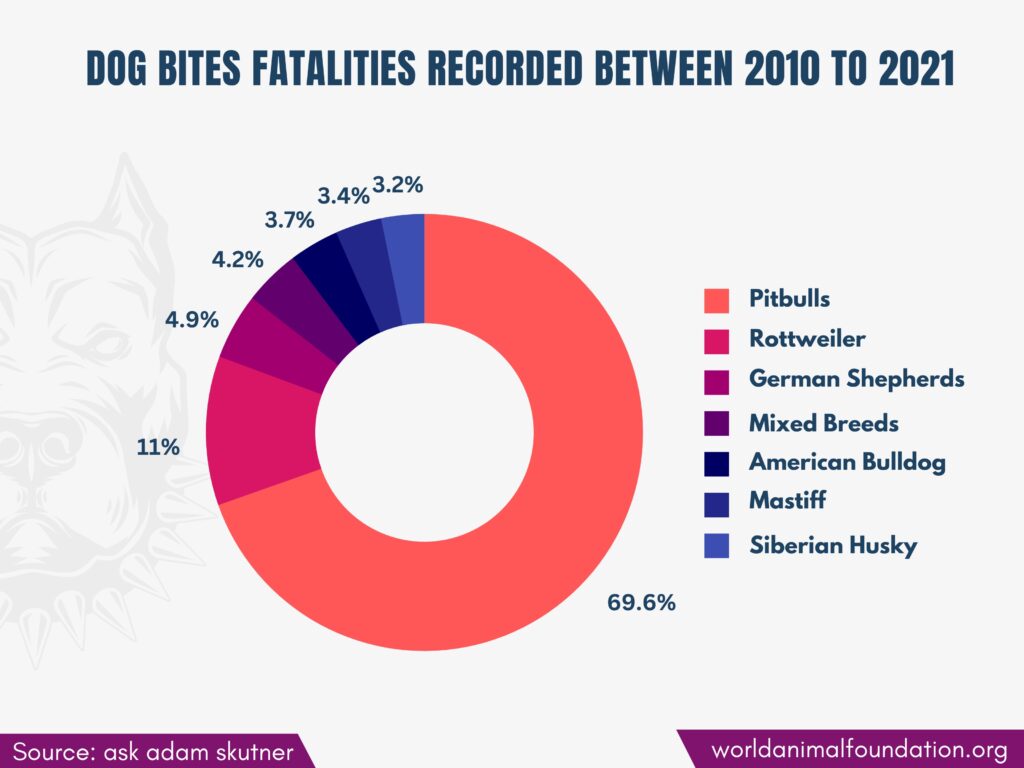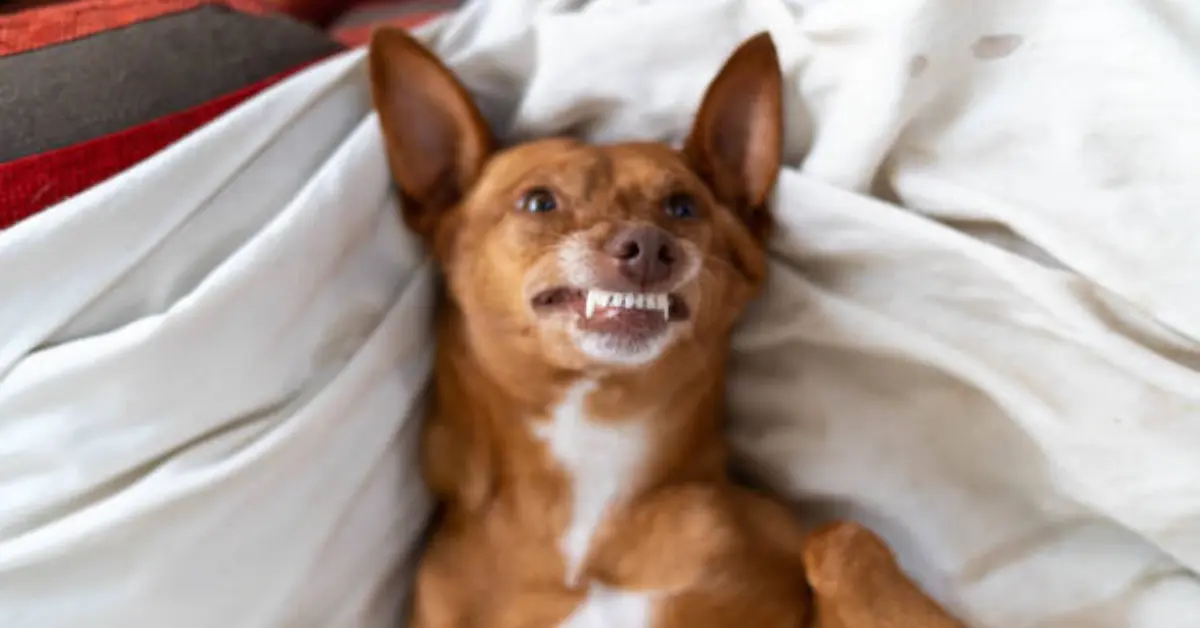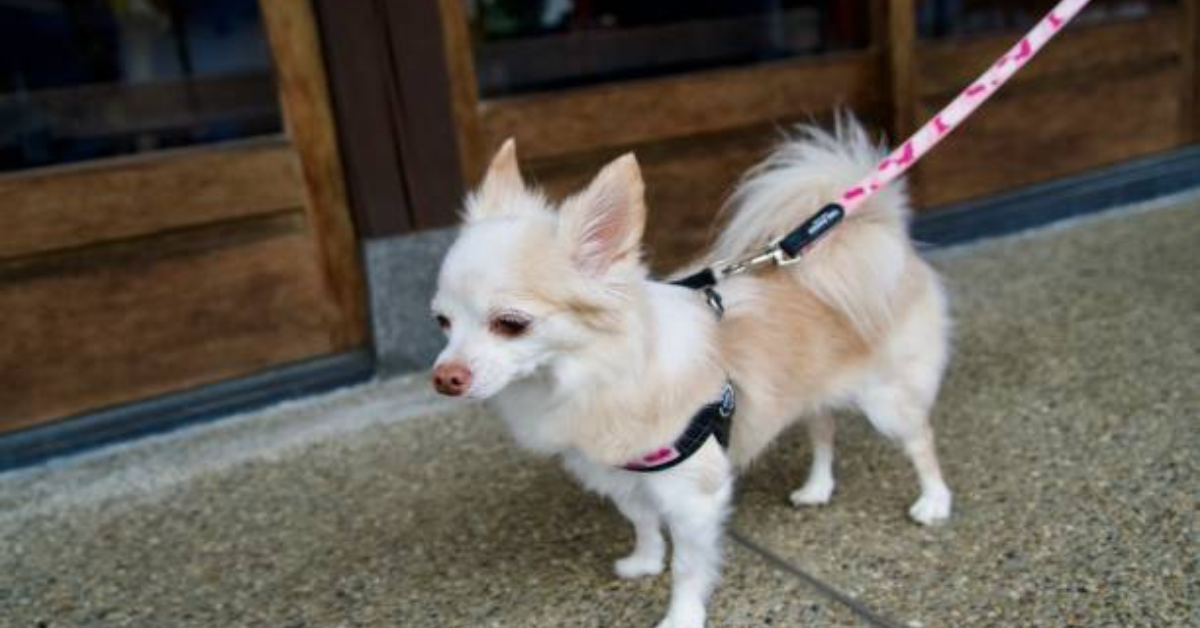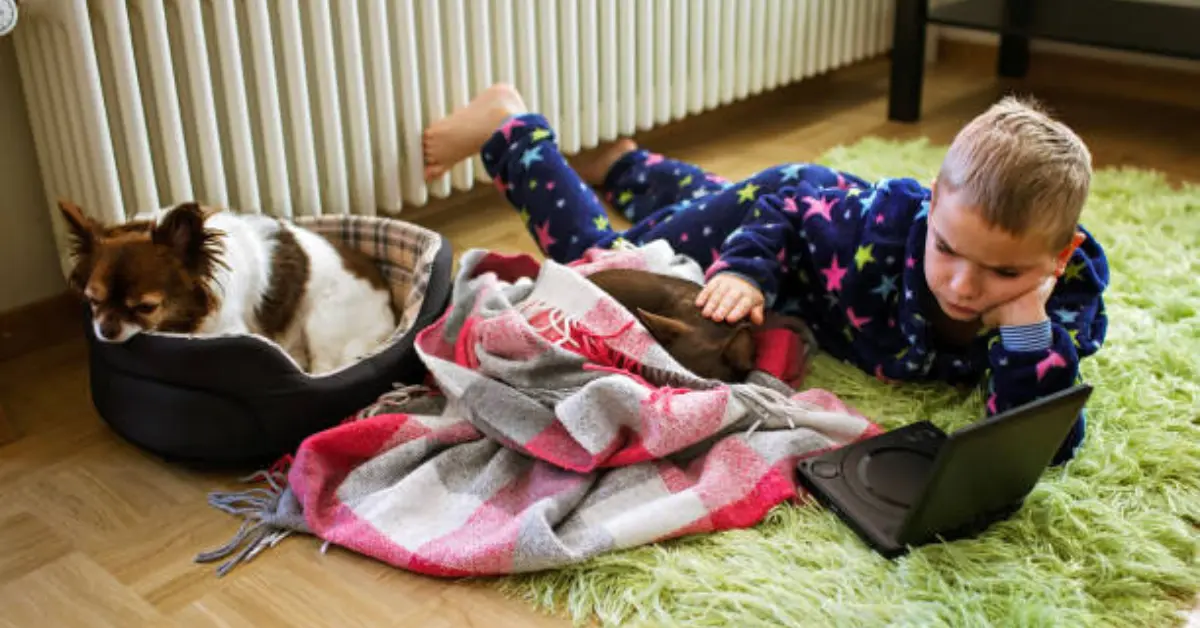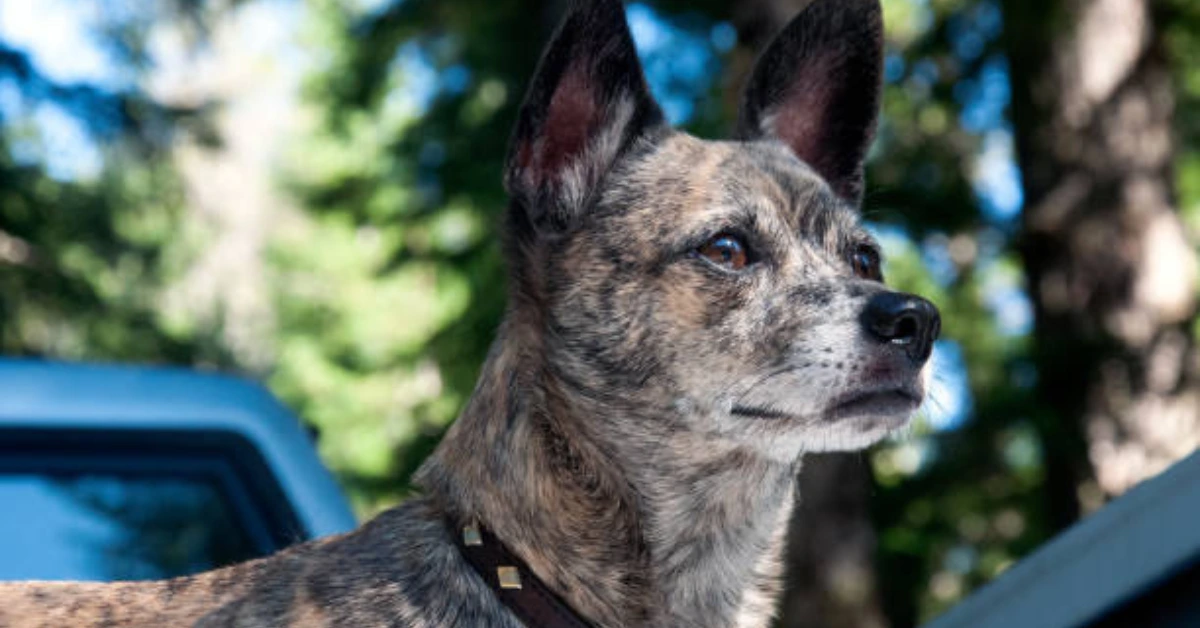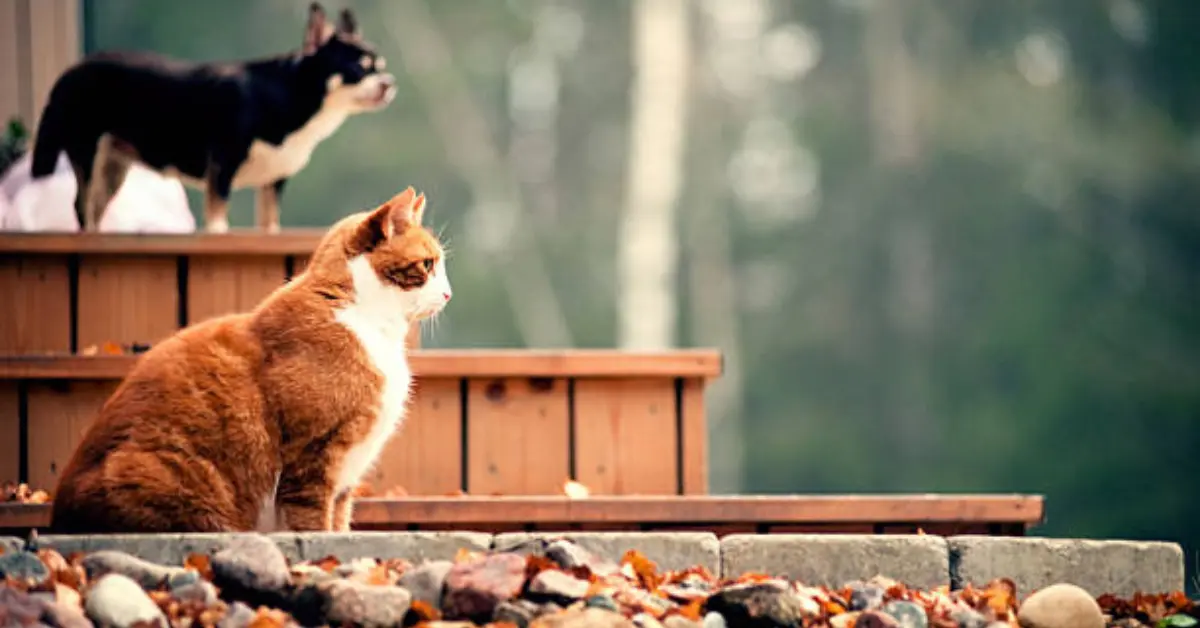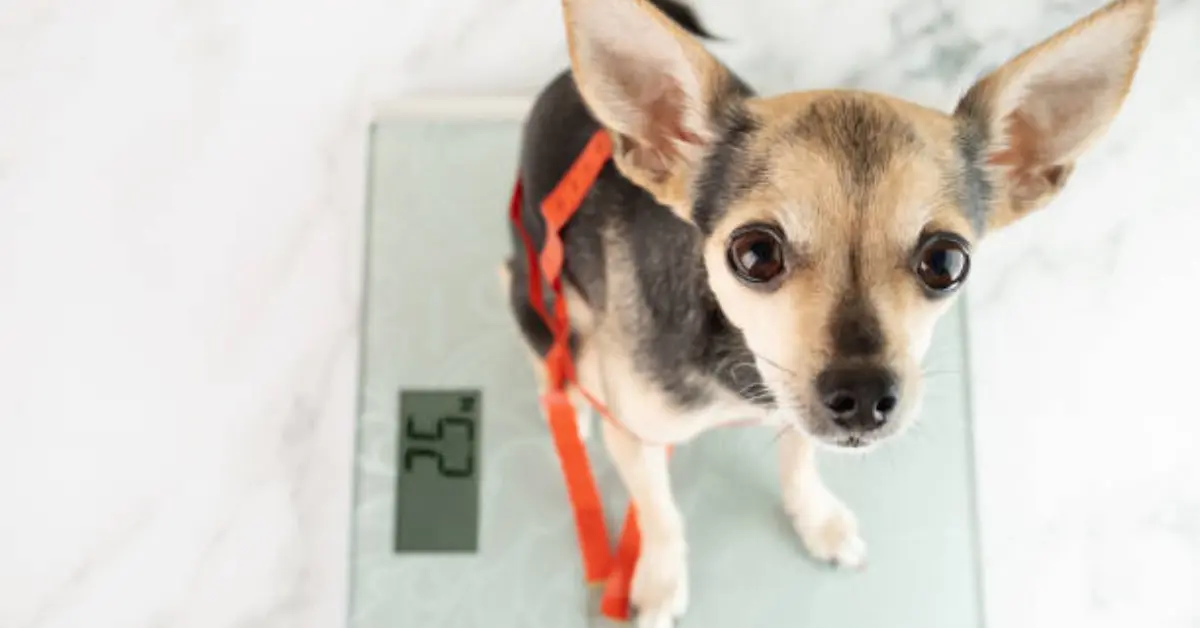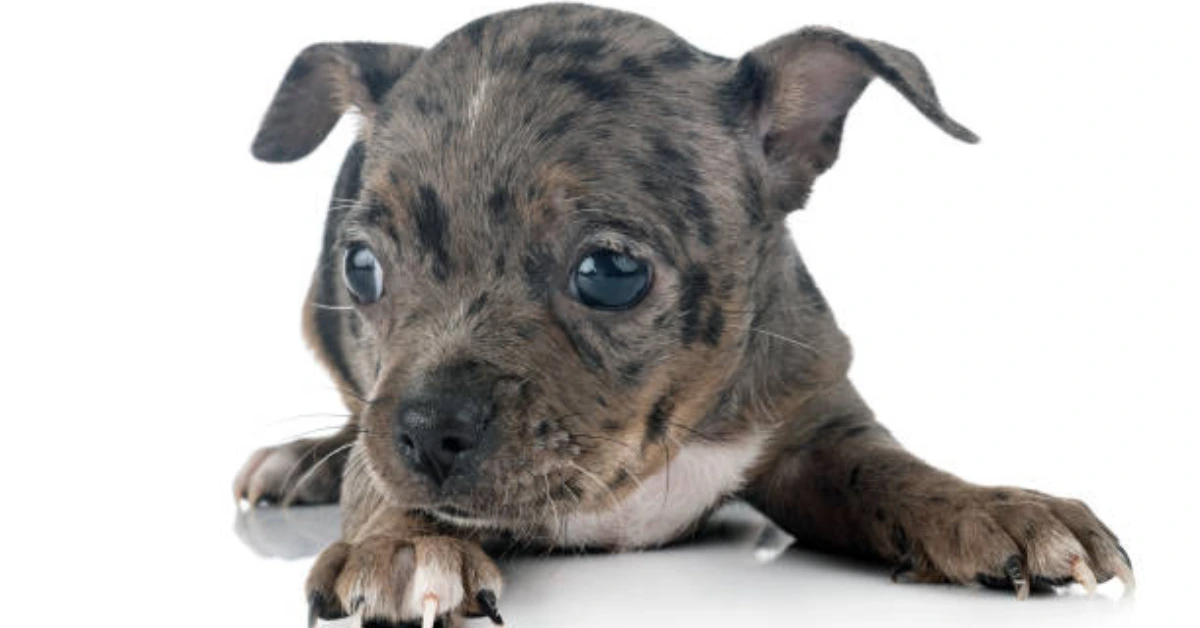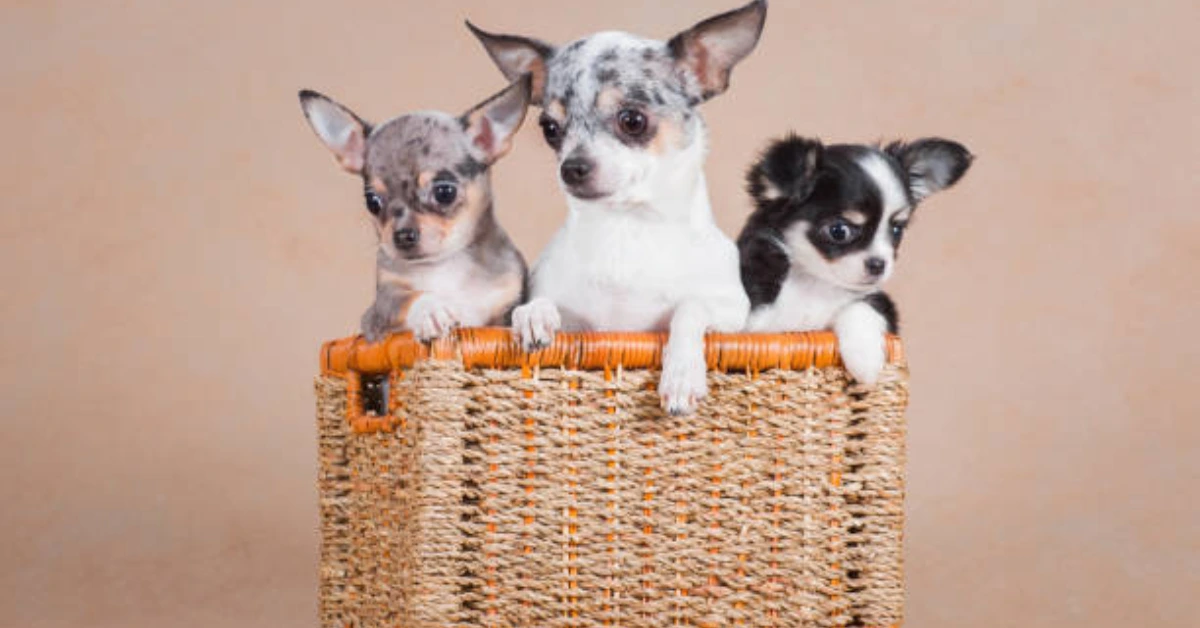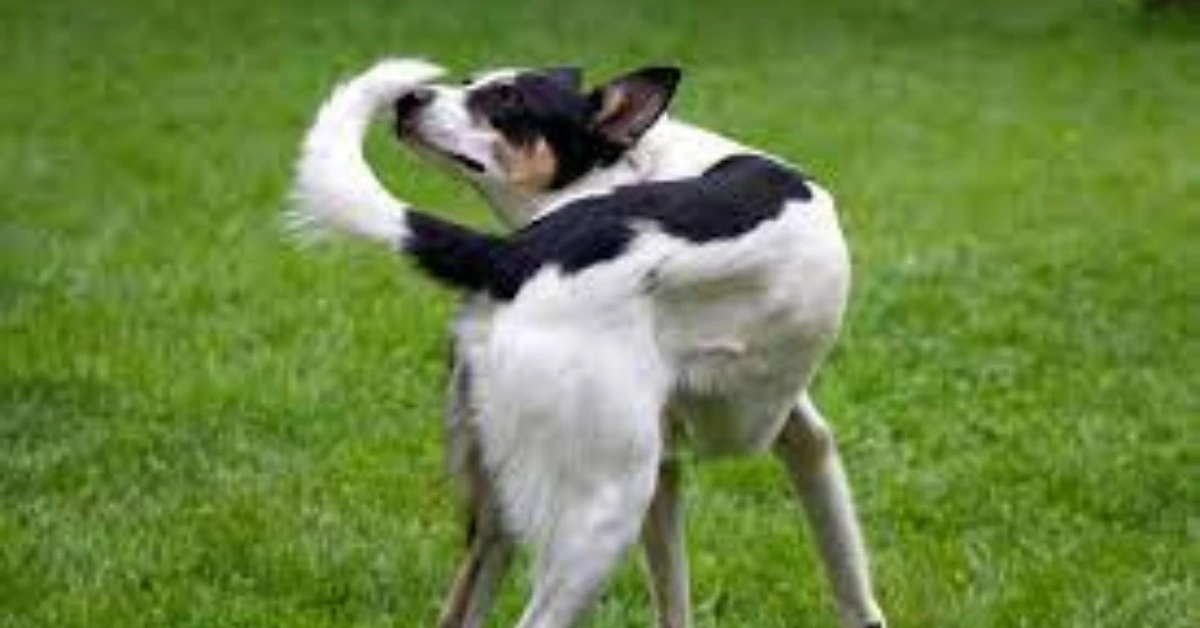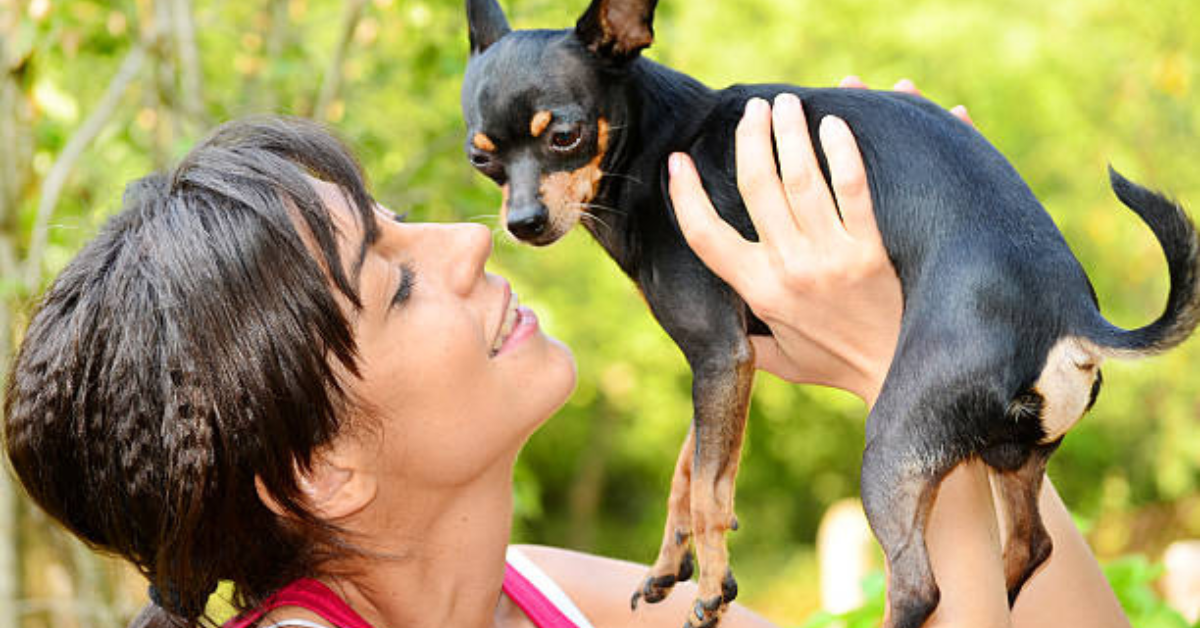Are you wondering why Chihuahuas can be cruel at times? Get ready for these little pets’ vibrant personalities. The world’s tiniest dog breed, the Chihuahua, is famous for its devotion and lively personality. They are well-known for something else, though.
Some owners of adorable Chihuahuas maintain that their pups are the sweetest dogs ever. But others have experienced their fierce side. Jack Russell Terriers, Dachshunds, and Chihuahuas all frequently exhibit aggression.
It’s crucial to recognize the possibility of aggressive behavior in these tiny troublemakers. To be ready to deal with it if you decide to adopt one. Thus, get a comfortable dog bed and set up a haven for your new pet.
Advertisement
Why Chihuahuas Are So Mean?
A Chihuahua may behave cruelly or aggressively against their owners, strangers, kids, cats, or other dogs for a surprisingly wide number of reasons.
It can be challenging to determine which of these specifically pertains to your Chihuahua. But you can work your way through the list to better understand your Chihuahua and assist with their adaptation. This will lessen their alleged need to believe that Chihuahuas must behave violently toward other people.
Here are the primary reasons your Chihuahua might be mean. To assist you in determining what might be driving your dog’s hostility.
1. Less expert help is provided to Chihuahua owners for their dogs
According to a study, when a large dog, such as a pit bull, exhibits aggressive behavior, owners are more likely to seek expert help. Small dog owners, however, might overlook getting their canines the assistance they need because they think their dogs can’t hurt someone.
Small dogs, like Chihuahuas, are therefore less likely to get the help they need even when they show symptoms of insecurity, anxiety, tension, or fear.
Because they weigh fewer than six pounds, Chihuahuas are especially sensitive to their environment. Larger dogs, kids, and even their owners could be overpowering and frightening to them, which could make them aggressive in self-defense. Professional intervention is essential for resolving these serious behavioral problems.
2. Chihuahuas are very Protective
Chihuahuas, like other dogs, are fiercely loyal to their pack, which consists of their owners and siblings. This loyalty can sometimes drive them to become extremely needy.
Your Chihuahua may be overly protective of you. This kind of hostility is typically reserved for situations in which the owner is being approached by a stranger or another animal.
A very vicious Chihuahua might snap at the person approaching, but usually, this kind of protectiveness takes the form of barking and snarling rather than a physical attack.
The Chihuahua will only put themselves in danger to save their owner or another dog if they believe they have no other choice and that they are in grave danger.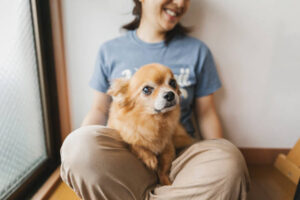
3. These Tiny Dogs Are Territorial
In reality, chihuahuas have a great inclination to defend their house from intruders and are extremely territorial dogs. Your Chihuahua could get defensive to stop someone or something from going too far in their territory if they feel like they are. The introduction of unusual new individuals and their pets frequently causes this.
A Chihuahua that exhibits severe territorial behavior may try to attack the person or animal that is threatening them. When a Chihuahua engages in aggressive behavior as part of a territorial display, you can normally expect them to act out less when walking and only to do so at home.
4. Your Chihuahua Suffer From “Small Dog Syndrome”
Simply put, “Small Dog Syndrome” is a humorous way of explaining that certain chihuahuas are inherently defensive. As we’ve already discussed, little dogs are frail, weak, and vulnerable by nature. Because they are the tiniest dog breed, chihuahuas are the most delicate animals.
Because of this, Chihuahuas frequently have assertive personalities that give the appearance that they are fearless. Examples of this include barking, growling, chasing, and confronting people before they have a chance to approach them politely.
Small Dog Syndrome-afflicted Chihuahuas can be very stubborn in addition to being violent. Because they frequently become obstinate and combative, you may find it difficult to coach them out of their undesirable conduct.
Furthermore, Chihuahuas with SDS may never stop trying to lead the group when they walk, refuse to go on a leash, or even act pitifully by pleading for food with their large, wide eyes and high-pitched whines.
5. Problem Of Socialization
Even in situations where they have no one to protect, an antisocial Chihuahua will typically express the qualities listed above, such as territorial and protective displays as well as a general unease around other dogs.
When allowed to make their own decisions, chihuahuas are inherently sentient animals. This is because, in the absence of a pack, they feel exposed and may become tense near other animals.
When your Chihuahua exhibits antisocial behavior. It is more noticeable when it acts out around other people while it is not aware of your presence.
When other canines approach, you might notice that your Chihuahua gives them sideways glances, becomes agitated when they see other animals or people moving swiftly, snaps at them, or even just stands with its head down and ears lowered in social situations.
6. The stress indicators of pet Chihuahuas are often overlooked by owners
Breeders and dog owners may cause their Chihuahuas to become aggressive. They let their dog down in many ways, including by willfully ignoring or failing to comprehend their communication.
Regretfully, people frequently ignore bad behavior in Chihuahuas and unintentionally encourage it. Some even find it funny to intentionally taunt their dog to get a response. Several videos on the internet depict this behavior.
Chihuahuas and other small canines frequently show early indications of discontent when someone enters their personal space. These symptoms include yawning, lip-licking, rapid breathing, avoiding eye contact, and other stress-related behaviors.
People should anticipate that their dog will turn from snarling to biting if they ignore these indications and keep upsetting it. However, you can reduce the risk of a bite by merely acknowledging the dog’s concern and responding to their initial cues. Chihuahuas can learn appropriate conduct and acquire confidence through positive training.
7. Chihuahuas frequently have traumatic experiences
This is related to stress and anxiety, but a Chihuahua that has been saved from an unfavorable home environment is more prone to act aggressively when something triggers it—a sound, movement, smell, or occasion that brings back memories of its prior encounters.
Rescued dogs do not necessarily turn into nasty dogs, but they do have a much greater tendency to respond erratically in any circumstance.
Whereas a guarding Chihuahua might growl at strangers approaching too closely to its family or bark at strangers, a traumatized Chihuahua may exhibit other behaviors that could trigger an untimely outburst.
In a typical, quiet environment, it could be that something in the room has set off a negative reaction if they are trembling, sobbing, or displaying outward indications of tension.
You may even discover that certain actions you take as their owner cause them to become defensive and possibly even attack. When you are first getting to know your rescue Chihuahua, you need to be careful to make sure you are reading their body language.
8. Change In Routine
When you change the routine of A Chihuahua. It may exhibit simple nervousness when its routine is altered. This could occur when relocating or bringing a new person or pet into the home.
It just needs to be a matter of giving them time to become used to their new habit and/or surroundings and providing them with positive reinforcement to encourage acceptance.
9. When they are frightened, Chihuahuas often attack instinctively
If that’s the case, the Chihuahua may just be reacting naturally when it gets scared. Should someone walk into the room out of the blue while the Chihuahua is close, the dog might attack if it thinks it is being threatened.
If they were asleep at the time of the invasion, this is especially true. I’m sorry, but that one event can be enough to label a Chihuahua as mean, even if it was only one time.
10. Your Dog Is Stressed Or Anxious
When a Chihuahua is under a lot of stress, its weak body can make it more anxious.
You should know that for a Chihuahua, whose eyes are just above the legs, “high stress” means something very different. Taking a Chihuahua to a party where a lot of people are walking around may cause a lot of stress because it is always at risk of being stepped on.
Chihuahuas are genetically more likely to shake, so your little friend may shake even when he or she is calm. But if you see that they are scared, you might want to take them out of the situation because they get angry.
Signs of an aggressive Chihuahua
Chihuahuas are not mean by nature. A lot of it is learned behavior or instincts that aren’t being tamed. It can be learned during a traumatic childhood, which can make them act aggressively in ways they might not have otherwise, like when they are forced to mate in a puppy mill or when they are forced to fight.
There are times when something as easy as a Chihuahua growling can get worse quickly if you don’t notice it right away.
If, on the other hand, you let a nasty Chihuahua develop its behavior naturally by acting very defensively or even offensively toward other people or dogs. T²hey may learn that they can’t hurt anyone, so it’s not a problem.
This is not right. As soon as possible, any kind of aggressive behavior should be stopped by carefully teaching and watching the dog’s behavior. These are some signs that your Chihuahua is being mean:
Chihuahua gives a hard stare
Chihuahuas often look at you with a hard, unblinking stare when they are tense and think you might be a threat. They don’t want to look away in case you do something they don’t like.
This is also true if you see that your Chihuahua is stiff and still in its body while giving you the side-eye.
They are getting ready to fight off an attack or make a move to scare off whoever or whatever is coming at them by keeping their bodies still.
If you see this kind of action, you should move away and get down on their level. After that, you should wait for the Chihuahua to come to you.
Chihuahua is snarling
When the Chihuahua gives you a hard stare, the next thing it does is show its teeth to tell you to back off. Putting your dog in this position is like showing someone a gun to keep them from getting closer.
Your rescue Chihuahua may be extra nervous around new people if it has lost its teeth along the way. This is because they no longer have their main way of protecting themselves.
Chihuahua is growling
If a Chihuahua thinks that its previous warnings were ignored, it will start to make noise to let anyone or anything that is coming closer know that they are not welcome.
The Chihuahua will give this last warning before getting ready to fight. You should listen to this advice and give them time to heal and deal with what happened before you try again.
The ears of a Chihuahua are flattened, and the head is dropped
Your Chihuahua is ready to fight because its head is lowered, which is a protective position. When the head is dropped and the ears are flattened, it shows that the dog is angry.
To protect its ears, a Chihuahua will flatten them to its head when it fights. This is because the ears are soft and easily hurt by being scratched or bit.
Chihuahua is lunging
On the off chance that a Chihuahua feels like it has no other choice but to attack, it might do so.
If your Chihuahua tightens its muscles around its legs and shifts its stance as if it’s ready to pounce, that means it wants to spring. You should take them out of the situation right away.
They should never be able to attack or be led to believe that it is their only choice. Chihuahuas may not be very big, but their teeth are very sharp, so they can still do damage if they want to.
How to tame your aggressive Chihuahua
A Chihuahua’s trainability to be non-aggressive depends on several breed-specific elements. It could be that they need retraining or reconditioning to make them more acclimated to their environment, or it could be that you need to learn how to assert your dominance over them for them to accept you as the leader.
It’s crucial to remember that training a Chihuahua to become less aggressive requires persistence, patience, and time. The following are the best methods for training an aggressive Chihuahua:
socialization
When your Chihuahua is still a puppy, it is very worthwhile to place a strong emphasis on appropriate socializing. If the defensive instincts of an antisocial Chihuahua get a chance to take over, it can become a mean Chihuahua.
You must instill in them the belief that everyday life presents no reason for fear. Use play dates, puppy classes, and dog parks to promote socialization and give them a more laid-back way to get to know other animals.
Give Your Dog Treat
Numerous relaxing dog treats and sprays that reduce tension and anxiety are available on the market. This might be especially useful for rescue dogs whose past experiences have left them anxious. Or even for a generally anxious puppy who finds it difficult to settle in.
Show Your Dog Who Is The Leader
This is something that you learn when you train hard. Based on how you teach it, a Chihuahua should know who the pack boss is on its own.
Make sure they know how important you are to them by making eye contact. Being the first person through the door, eating your food separately from theirs, and staying calm when they walk in the room. This will show them that you will pay attention to them on their terms.
Positive reinforcement training
Positive feedback is the best way to train most dogs because it teaches them that good behavior gets them a treat and bad behavior gets them a spanking.
You could try giving your Chihuahua a treat every time they choose not to react badly to something if you are having a hard time getting them to stop it. Chihuahuas are smart dogs that will quickly figure out that when they’re calm, they get treats and will start to behave in a way that gets them those treats.
Be Patient
It’s sometimes necessary to use more than one of the above methods and be a little more patient if your Chihuahua is having a really hard time adjusting.
Even more so when it comes to rescue dogs. Things that make mean Chihuahuas act out sometimes have to do with their past. Which you may or may not know. If the animal you rescued has had a bad past. They may need a little extra care as they get familiar with their new home and surroundings.
Is Chihuahua Naturally a Truly Dangerous Dog?
No, not really. Many people who have never owned a Chihuahua before want to know “how to make my Chihuahua less aggressive?”. But the most important thing is to keep them safe and teach them there is nothing to fear.
The nature vs. nurture debate makes people wonder if a Chihuahua is generally mean or if it is something that it learns. From a natural point of view, it is an animal’s instinct to want to protect itself. This instinct will be stronger for an animal that is small, fragile, and much weaker than all other animals of its kind.
When they are born, Chihuahuas often have a natural desire to look bigger and scarier than they are to keep predators away. That’s why they often have a little fire in their bellies that other breeds might not have. But if they feel safe, it’s easy to put out.
Even though some Chihuahuas are naturally protective and aggressive, not all of them want to have their backs up all the time. If a Chihuahua is around other violent dogs, it could pick up on that behavior. This could be a Chihuahua that was rescued from a dog mill or a home where it was abused. It could also be one that doesn’t get along with other cats in the house.
When you’re not around, pets will act mean to each other, just like kids do. If you have a Chihuahua and a bigger dog. You should watch the Chihuahua as much as possible in secret at first. Watch for signs of fear or submission around the bigger dog, as this could mean that the Chihuahua is being controlled.
Dog Bite Statistics by Breed
It is difficult to imagine our cherished companion dogs as potentially aggressive creatures. Capable of causing severe physical injuries or even fatalities. However, as conscientious pet owners, we have to acknowledge that accidents can happen.
Dog bite statistics do support the notion that specific breeds are more likely to bite, although large dogs are disproportionately responsible for dog bite injuries due to their larger bite force.
It is less common for those bitten by small dogs such as chihuahuas to report the incidence.
Dog Bite Statistics in the U.S.
Using these insightful dog bite statistics as a guide. Let’s examine some eye-opening insights concerning dog bite incidences and their effects:
Last Word
Chihuahuas tend to be shy. But if you can train them right and help them to be familiar with their surroundings. They are very sweet, loving, and loyal dogs. Chihuahuas also form very strong bonds with their owners. Which is why they have been used as pets for a long time.
Once you know what a Chihuahua does. All you have to do is figure out how to calm them down and, if possible, teach them to be kind. That will almost certainly make sure your Chihuahua lives a calm and happy life.
YOU MAY ALSO LIKE:
How to Walk A Chihuahua That is Aggressive
13 Tips On How To Train An Aggressive Chihuahua
Simple Tips for Aiding a Rescue Chihuahua Adjust
Advertisement

